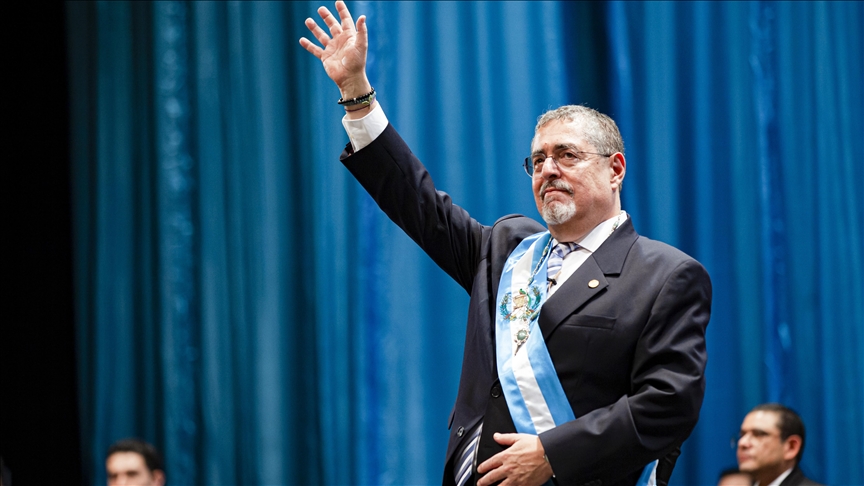ANKARA
Bernardo Arevalo was sworn in as Guatemala’s president early Monday after a nearly nine-hour delay due to legal challenges from the country’s attorney general’s office.
The 65-year-old anti-corruption activist was sworn in five months after winning a run-off election against businesswoman and former first lady Sandra Torres in August of last year.
Arevalo was sworn in at a ceremony in Congress, which was originally scheduled for 3 p.m. local time on Sunday.
On Friday, the Guatemala Supreme Court banned Arevalo’s Seed Movement party activities, triggering a crisis in the country that lasted until Sunday and primarily caused his inauguration ceremony to be postponed.
Following the verdict, hundreds of Arevalo supporters clashed with security forces in Congress to protest. In his statement on X, Arevalo said, “Lawmakers are responsible for respecting the will of the people expressed at the ballot box. Unlawful practices, trivial matters, and abuse of office strike a blow to democracy. The people of Guatemala and the international community are watching.”
On Monday, the country’s news and information account Gobierno Guatemala said on X that Arevalo made his inauguration speech as the president.
“During his inauguration speech, the president @BArevalodeLeon stated that Guatemala is moving steadily towards a future where citizen participation and positive change will prevail. Today, as a nation, we are making history. #GuatemalaAvanza,” it said.
“I feel ecstatic because we are finally coming to the end of this long and arduous process. The Guatemalan community has developed a determination to say ‘no’ to these political-criminal elites,” during the swearing-in ceremony at the Congress, Arevalo said.
After the inconclusive results of the first round of the presidential election on June 25 of last year, left-wing Arevalo won the second round on Aug. 20.
However, the Electoral Board refused to recognize lawmakers from the Seed Movement and suspended the party’s activities, citing irregularities during in the signature collection process for the party’s formation.

